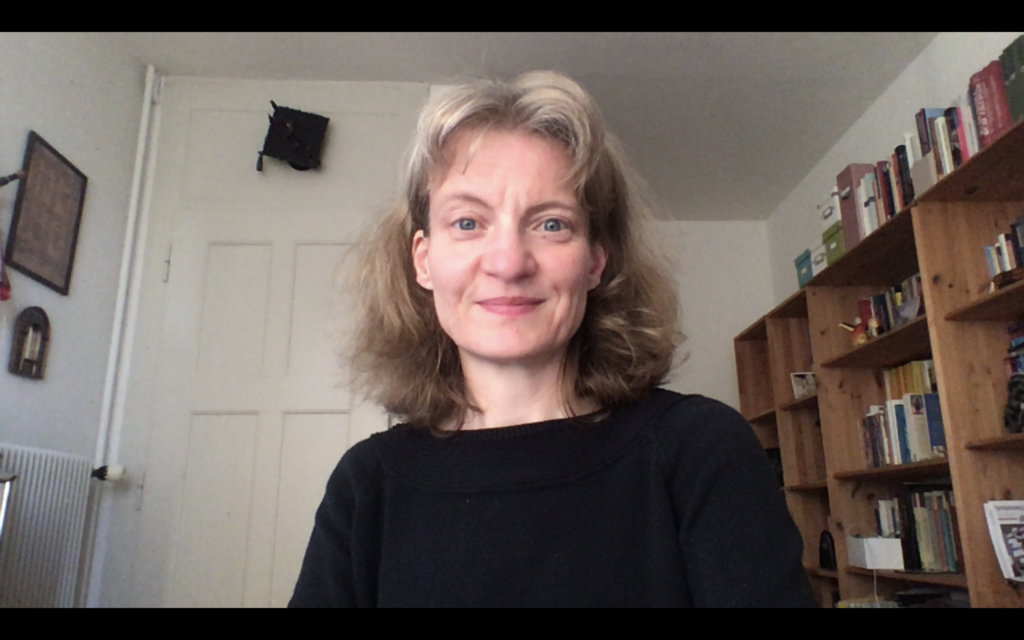Mapping London Through Song: Geographies of Popular Music And Transculturalism

Abstract:
This presentation sketches approaches the musical mapping of London – as undertaken in many “best of”-lists from a transcultural perspective. Reflecting on the concept of transculturalism and the method of Cultural Mapping, the presentation starts out from a macro-perspective by mapping the songs that have been related to London in popular music. As becomes apparent here, mainstream music lists represent and contribute to the implementation of iconic London locations. Yet, as a comparison of songs related to one central reference location, such as “London Bridge”, illustrates, related attributions vary strongly, hereby representing different mappings of London. At the same time, these popular lists contrast the musical network of communities so varied and complex as London, hereby often excluding repertoires that actually address transcultural identities in a context of thick globalization and modern digitalization.
Britta Sweers is Professor of Cultural Anthropology of Music at the Institute of Musicology and was Director of the Center for Global Studies (2015-2019) at the University of Bern (Switzerland). Having studied at Hamburg University and Indiana University, she was Junior Professor at the Hochschule für Musik und Theater Rostock (Germany) 2003 to 2009. Major publications include Electric Folk: The Changing Face of English Traditional Music (2005), Music, Climate Change, and the North (editor, 2019), and Cultural Mapping and Musical Diversity (co-editor; 2020). She is also co-editor of the Equinox book series Transcultural Music Studies.

Hi Britta, thanks for a great presentation. I’m really excited to read your work on cultural mapping; I’ve personally taken an interest in it recently via Sara Cohen’s work on the topic (e.g. rock music in Liverpool). My question is about transculturalism or ‘the transcultural’, and what inspired you to think of this as your analytical frame for music in London?
As you probably know there is the problem of ‘methodological nationalism’ in migration and mobility studies, the problem of scholars assuming the nation state as their basic unit of analysis, and therefore missing out on a lot of interesting human/cultural diversity across different boundaries. Focusing on interaction between cultures i.e. transculturalism seems like a straightforward solution to that problem, and as we know London is very multicultural.
Not to take up too much of your time, but I’d also be curious to hear about your (tentative) methodology or what kind of fieldwork you’d like to conduct in London, once covid restrictions ease up and musical spaces start to reopen (are there particular areas you’re interested in mapping out for example)?
Dear Ivan,
Thanks a lot for this kind feedback!
Actually – Simon suggested the broader framework of transculturalism to me, and I am very grateful for that, because it stimulated a (re-)reflection on the actual meaning of the concept and on how our musicological disciplines are actually applying concepts from the broader area of Cultural Theory. I also regarded this as a kind of experiment, because the idea of looking at the mapping of London in popular music songs was there from the beginning. Yet it was the deeper analysis of the transculturalism concepts that brought out the limited representation of London in the song lists. I fully agree with you – working further with this concept could help to transgress the limited perspectives of the limiting conceptualization of nation state-related thinking. I thus think that it is actually worth re-visiting existent discourses – of which I could only present a small snippet — on transnationalism.
Regarding my future work, there are several aspects that I plan to pursue. One relates to the actual process of mapping. While this approach has been present in early ethnomusicology, it was later slightly pushed aside, maybe also because it was connected to Comparative Musicology. Yet, the whole UNESCO-related debate on Cultural Mapping has been stimulating a revival of mapping, although, as I indicated in the talk – UNESCO has been very vague about the actual approach, e.g. what do you actually map – how? The visualization is a major challenge. I actually found that my archaeology colleagues are working with nice computer programs which I want to explore during the summer – also in order to prepare for a seminar on mapping music cultures/ events etc. in Bern. Based on these experiences I might indeed return to London for a fieldwork project. However, I have been wondering whether mapping projects might benefit from teamwork – it is almost too much for an individual researcher. One approach could be the mapping of actual traditions, genres, etc. This would help to figure out where genres, etc. are located – beyond any limitations with regard to established area-(and nation-)related thinking, hereby maybe revealing different maps. Yet, another one could also be a deeper investigation of a specific area (or a small snipped of that) – e.g. Camden. This might contribute to making existent, but hidden traditions actually visible. As you can see, I am still playing around with potential ideas at the moment…